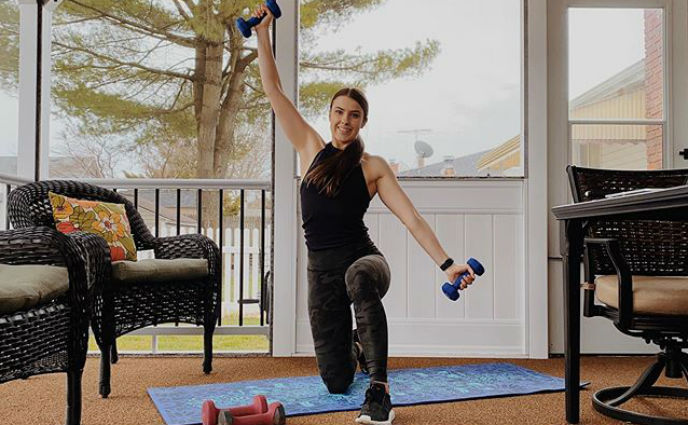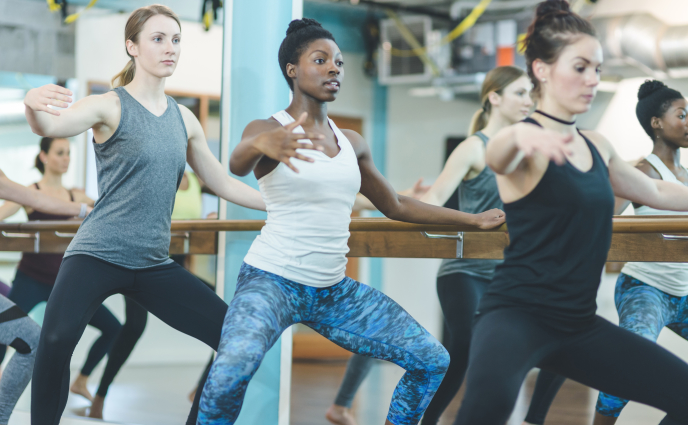"Even if posture seems to be the main reason for aching shoulders, it's important to stay curious about potential energetic or emotional components to the tension," says Cardion who also suggests introspection and journaling as a self-awareness tool.
"Often, people realise the tension and stress is from taking on too much, or taking on 'stuff' that isn't really theirs — 'carrying' someone else's emotional baggage for them, or feeling responsible for stuff that we really have no control over. We truly do carry the weight of the world in our shoulders, and when we can acknowledge it, we can learn how to put it down," she says.
Image via RoBeDeRo/E+/Getty
"Don't ignore other related areas. When working with muscle pain and tension in one spot, the normal tendency is to focus right where you feel the pain," says Hardy. "However, it's very common for other muscle groups to be compensating, and contributing to patterns of pain and tension. I find that two areas very often involved with neck and shoulder tension are the rotator cuff muscles, and the pectorals."
Image via TravelCouples/Moment/Getty






